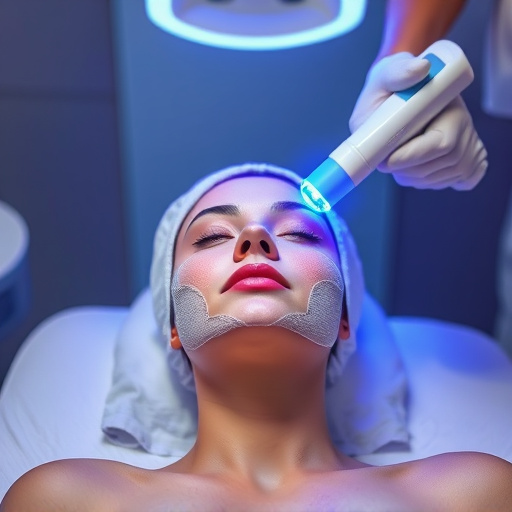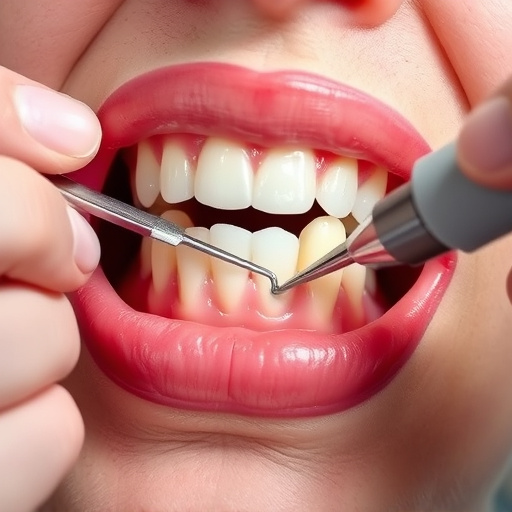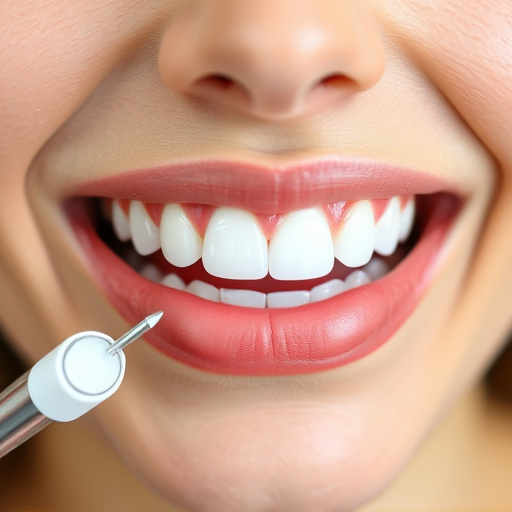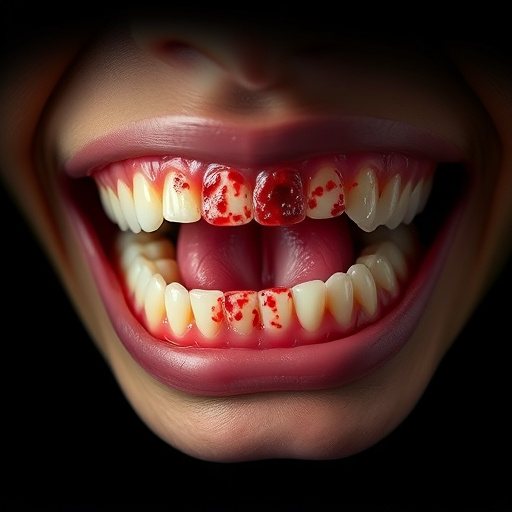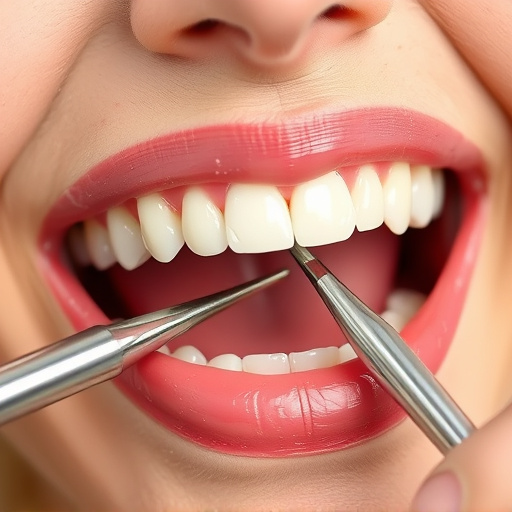Snoring affects sleep quality and overall health, with solutions ranging from lifestyle changes like exercise, diet adjustments, and dental hygiene to medical interventions such as oral appliances, tooth repair, and bonding for severe cases. Non-surgical treatments include custom mouthguards and dentistry techniques. Consulting experts and making behavioral adjustments offer effective snoring treatment options for improved sleep and well-being.
“Tired of disruptive nights and your partner’s restless sleep? Discover advanced snoring treatment options that promise silent, peaceful rest. This comprehensive guide from sleep experts delves into innovative solutions, from non-surgical interventions to effective behavioral changes. Learn how to navigate the labyrinthine world of snoring treatments, aiming for a symphony of calm in your bedroom. Explore proven strategies to reclaim your quality sleep and transform your nights into a tranquil haven.”
- Understanding Advanced Snoring Solutions
- Non-Surgical Interventions for Snoring
- Behavioral and Lifestyle Changes for Better Sleep
Understanding Advanced Snoring Solutions
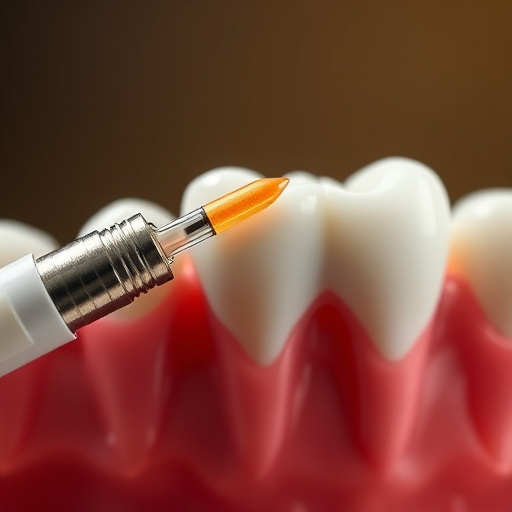
Snoring can be a complex condition that goes beyond simple annoyance, affecting sleep quality and overall health. Understanding advanced snoring solutions involves recognizing that treatment options range from lifestyle changes to medical interventions. For many, over-the-counter remedies or positional changes can provide relief. However, more severe cases may require professional help. Sleep experts offer comprehensive dental care, including tooth repair and dental bonding, as part of a holistic approach to address the root causes of snoring.
These advanced treatments are designed to improve airflow by adjusting the mouth and jaw structure. Tooth repair and dental bonding techniques can correct misalignments that contribute to snoring, while comprehensive dental care ensures optimal oral health integration with overall sleep wellness. By combining these strategies, individuals can find lasting relief, enhancing their quality of life and ensuring better nights’ rest.
Non-Surgical Interventions for Snoring
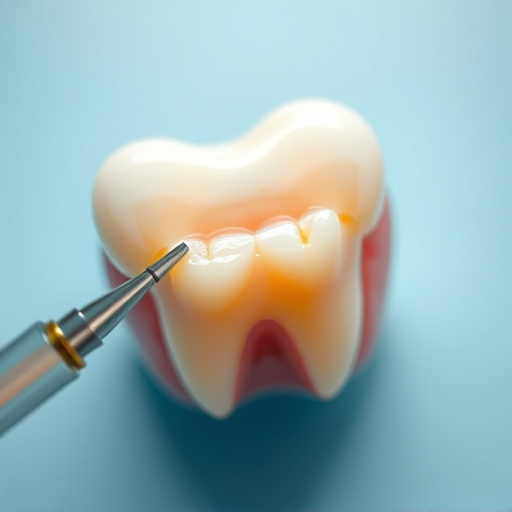
Non-surgical interventions offer a range of effective snoring treatment options for those seeking relief from this disruptive sleep condition. One innovative approach involves dental devices designed to reposition the jaw and open the airway during sleep. These custom-fitted mouthguards, often referred to as oral appliances, are a popular alternative to more invasive procedures. They can be particularly beneficial for individuals with mild to moderate snoring or those who prefer a less drastic solution.
In addition to these dental solutions, certain lifestyle adjustments and general dentistry techniques also play a role in managing snoring. For example, losing weight through diet and exercise can significantly reduce snoring frequency. In some cases, tooth extractions might be recommended to eliminate physical obstructions in the airway, though this is more relevant in children’s dentistry. Consulting with sleep experts and considering these diverse options can lead to an improved night’s rest and better overall health.
Behavioral and Lifestyle Changes for Better Sleep
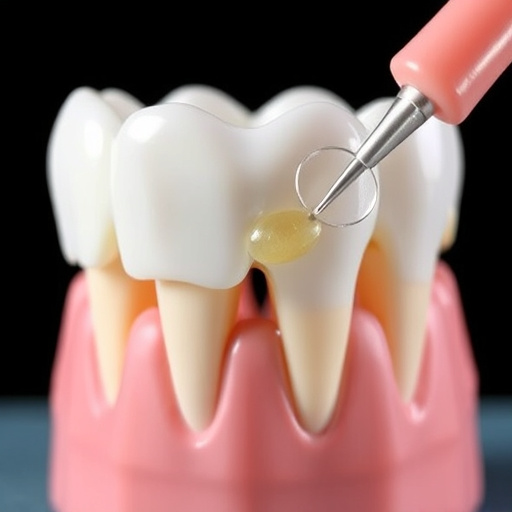
Snoring can often be a symptom of poor sleep hygiene and lifestyle choices. Implementing simple behavioral adjustments can significantly improve sleep quality and reduce snoring. One of the most common and effective changes is maintaining a consistent sleep schedule, ensuring adequate rest each night. Regular exercise during the day can also promote better sleep, but it’s best to avoid strenuous workouts close to bedtime as this may stimulate energy levels and delay sleep onset.
Additionally, dietary modifications play a role in snoring treatment options. Reducing alcohol consumption and avoiding large meals or caffeine before bed can help ease breathing and prevent the relaxation of throat muscles, which contributes to snoring. Maintaining oral health through proper brushing, flossing, and regular dental check-ups (including preventive dentistry measures like teeth cleaning) is another essential aspect. In some cases, tooth extractions may be necessary to alleviate snoring caused by specific dental issues.
Snoring can significantly impact sleep quality and overall health, but advanced snoring treatment options are available from sleep experts. By understanding various solutions, exploring non-surgical interventions, and adopting behavioral changes, individuals can find effective remedies for their snoring. Implementing these strategies not only improves sleep but also enhances overall well-being, ensuring quieter nights and better rest. When considering snoring treatment options, it’s essential to consult professionals who can guide personalized approaches tailored to individual needs.



